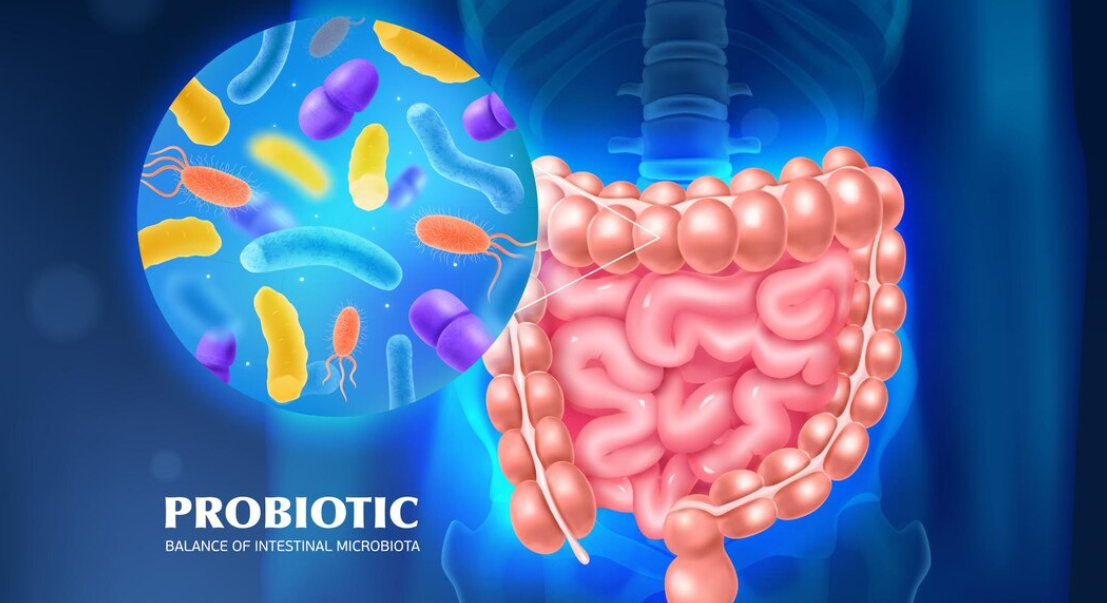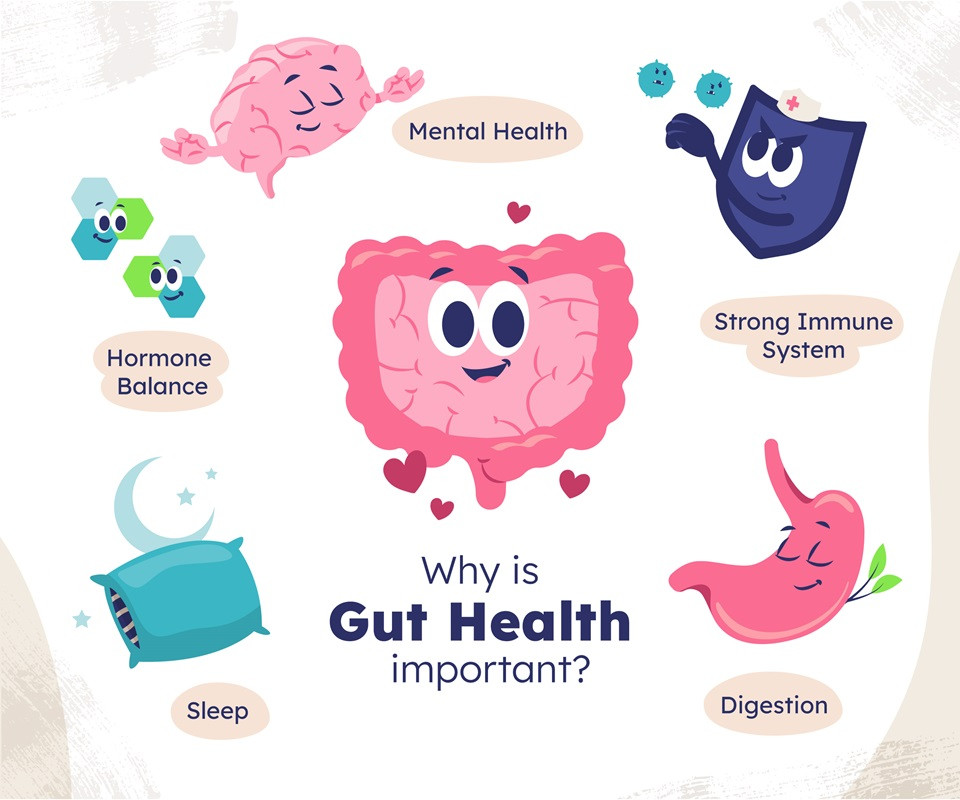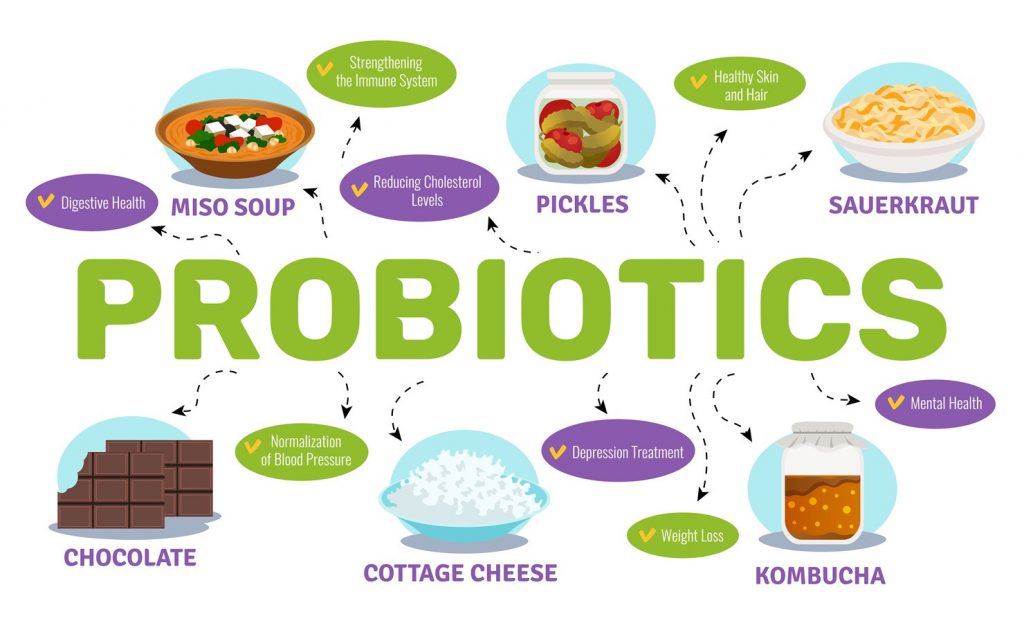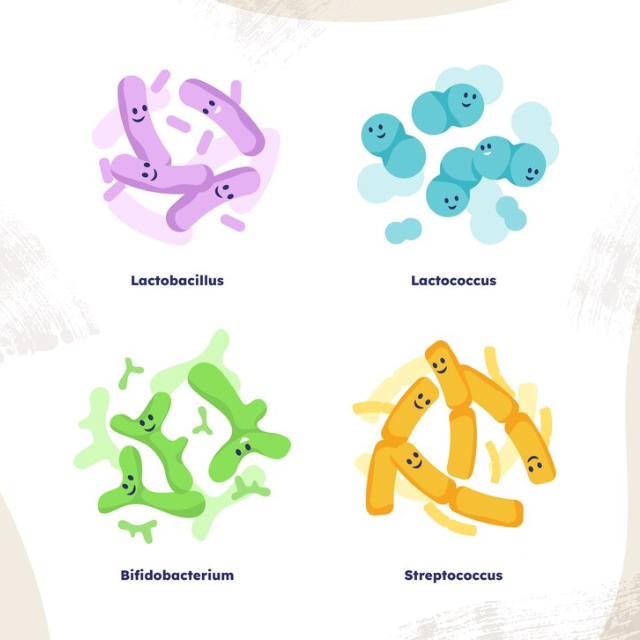Probiotics: The Secret to a Healthier Gut and a Healthier Life

©️ macrovector / Freepik
The tiny world within our gut holds immense power over our overall health.
Trillions of microbes, both friendly and not-so-friendly, call our digestive system home. This delicate ecosystem, known as the gut microbiome, plays a crucial role in digestion, immunity, and even mood. Here’s where probiotics come in – these are live bacteria and yeasts that offer a variety of health benefits by promoting a balanced gut microbiome.
But first, let’s learn more about the gut.
The Gut: The Foundation of Your Wellbeing
Before we talk about probiotics, we have to have a better understanding of the gut microbiome. The gut, also known as the gastrointestinal system, is more than just a passage for food. It’s a complex ecosystem teeming with trillions of microbes, collectively called the gut microbiome. This diverse community of bacteria, fungi, and other microorganisms plays a vital role in various aspects of your health, including:

- Digestion and Nutrient Absorption: Gut microbes break down food particles, aiding digestion and allowing your body to absorb essential nutrients.
- Immune System Function: A healthy gut microbiome helps train your immune system to differentiate between friend and foe, protecting you from harmful pathogens.
- Mental Health: The gut-brain connection is a hot area of research. There’s growing evidence that gut health may influence mood, anxiety, and even depression.
- Overall Well-being: When your gut is healthy, you’re more likely to experience better digestion, stronger immunity, and improved overall well-being.
Factors Affecting Gut Health
Several factors can influence the balance of your gut microbiome, both positively and negatively. These include:

- Diet: A diet rich in processed foods, sugar, and unhealthy fats can disrupt the gut microbiome. Conversely, a diet rich in fruits, vegetables, and whole grains promotes a diverse and healthy gut community.
- Lifestyle: Stress and lack of sleep can negatively impact gut health.
- Medications: Certain medications, particularly antibiotics, can disrupt the gut microbiome.
By understanding the importance of gut health and the factors that influence it, you can take steps to promote a balanced gut microbiome and optimize your overall well-being. This is where probiotics come into play.
The Powerhouse Probiotics
Characteristics
Probiotics are naturally found in our gut, but their numbers can be depleted by factors like stress, illness, and antibiotic use. Probiotic supplements and certain foods can help replenish these good bacteria. Common probiotic strains include Lactobacillus and Bifidobacterium.
How They Work
Probiotics work in several ways. They compete with harmful bacteria for space and nutrients, help break down food and absorb vitamins, and even stimulate the immune system.

Benefits of a Balanced Gut with Probiotics
- Improved Digestion: Probiotics can ease digestive issues like diarrhea, constipation, and bloating by regulating gut motility and promoting healthy digestion.
- Enhanced Immunity: A healthy gut microbiome is linked to a stronger immune system, potentially reducing your risk of infections and allergies.
- Potential Benefits Beyond Digestion: Research is ongoing, but probiotics may also play a role in managing conditions like eczema, irritable bowel syndrome (IBS), and even mental health.
While generally safe, probiotics may cause temporary gas or bloating in some people, especially when first starting out. It’s important to choose high-quality probiotic supplements and discuss them with your doctor, especially if you have underlying health conditions or a weakened immune system.
Probiotic Powerhouse Foods
Prebiotics are a type of dietary fiber that acts as food for probiotic bacteria. Think of them as fertilizer for your gut garden! Prebiotics are found in foods like fruits, vegetables, and whole grains.

- Yogurt with live and active cultures
- Kimchi (Korean fermented cabbage)
- Sauerkraut (fermented cabbage)
- Kombucha (fermented tea)
- Miso (fermented soybean paste)
- Tempeh (fermented soybeans)
Incorporating a variety of probiotic-rich foods and considering probiotic supplements, if advised by your doctor, can be a great way to support your gut health. A healthy gut is a happy gut, and a happy gut contributes to a healthier you!
Strain Specificity and Choosing the Right Probiotic
Probiotics aren’t a one-size-fits-all solution. Different probiotic strains offer different benefits. When choosing a supplement, look for one that lists the specific probiotic strains it contains. Here’s a brief breakdown of some common strains and their potential benefits:

- Lactobacillus acidophilus: May help with diarrhea, lactose intolerance, and vaginal health.
- Bifidobacterium bifidum: May improve gut health, constipation, and eczema.
- Saccharomyces boulardii: A yeast strain that may help with antibiotic-associated diarrhea and traveler’s diarrhea.
It is important to remember that everyone’s gut microbiome is unique. If you have any underlying health conditions, are pregnant, or breastfeeding, consult your doctor before starting a probiotic supplement. They can help you choose the right strain based on your individual needs and medical history.
You may also like: The Link Between Ultra-Processed Foods and Depression Discovered


